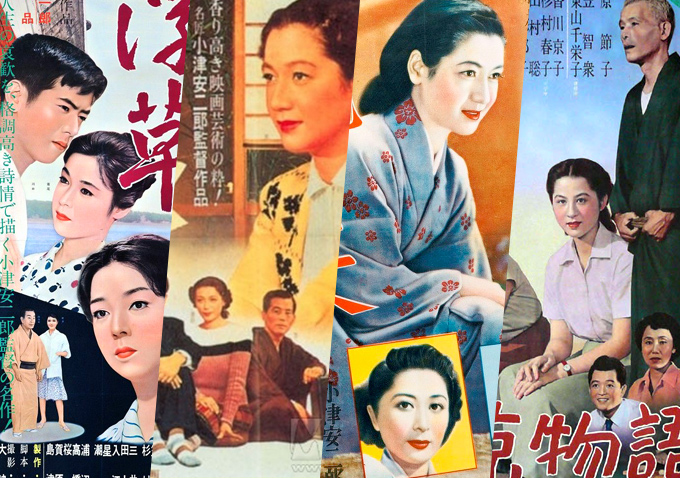If you go down to NYC’s Film Forum this week, you’ll find a cinephile treat: a new 4K restoration of “Late Spring,” one of the finest films from Yasujirō Ozu, one of the finest filmmakers that ever lived. Obviously, many of you are geographically unable to do that, but to us, it served as a reminder that we’ve never written a feature specifically built around Ozu’s work, and that seemed like an omission that needed rectifying immediately.
For the uninitiated, Ozu had a thirty-five year career, staring with his silent debut in 1927, to his death in 1963, and he scarcely made a bad film. He was always acclaimed at home, but only found an international following after his passing thanks to fans and critics like Paul Schrader and David Bordwell. Today, his films regularly rank highly on international critics polls, with “Tokyo Story” in particular often named one of the greatest movies ever made.
To those who never quite get the taste for him, Ozu made the same movie over and over again: quiet, understated dramas that often felt like variations on the same theme, using his trademark semi-austere, observational style (including the tatami shot, with the camera looking up at the actors from the ground) over and over again. His fans might possibly agree with assessment, but would also point to the endless nuance and humanity in Ozu’s work that makes his films endlessly moving, satisfying and rewarding.
With “Early Spring” playing until the end of the week, and many of Ozu’s finest works available on Criterion, we’ve picked out five of our absolute favorites as the essential entry-points to the director’s work, though we could have gone on much longer. Take a look below, and let us know your own beloved Ozu films in the comments section.
“I Was Born But…” (1932)
Ozu’s earliest films, mostly comedies, are mostly lost to the ravages of history — 1929’s “Student Romance: Days Of Youth” is the earliest one to survive, while some made as late as 1936 are yet to be found. But the film that arguably first marked him as a major talent, and that began something of a shift in his career, does survive, and it’s still one of his very best. One of his final silent films, it stars Hideo Sugawara and Tomio Aoki (the latter of whom had starred in Ozu’s short “A Straightforward Boy” a few years earlier) as Ryoichi and Keiji Yoshi, whose family have moved to the suburbs of Tokyo for the new job of their salaryman father (Tatsuo Saitō). It’s an uneasy transition, with threats of bullying seeing them try to play truant from school, but later they heartbreakingly discover that their father is having similar difficulties as them, and is not the stern, strong man they imagined him to be. The director loosely remade the film late in his career as “Good Morning,” but there’s a winning purity to the original version which has a loose, episodic comic tone for much of its running time, almost like a series of “Our Gang” shorts strung together (though Ozu’s framing is as controlled and rigorous as it ever would be), and with Aoki and Sugawara making utterly charming and authentic leads. It’s the sly social satire, which packs an unexpected emotional punch, that really elevates this, the director using his modest story to unpack larger truths about the culture of the time. Though he probably didn’t expect the film’s conclusion, in which the boys swear to join the military and become generals, to be as haunting as it now feels.






The Tokyo Story synopsis has quietly been corrected.
Thank you for pointing out those mistakes, they\’ve been fixed.
This article is littered with inaccuracies, including its statement-as-fact that Ozu\’s career began with a short film. Ozu never made anything but features. The most glaring discrepancy is his assertion that the youngest daughter went to Tokyo with her parents, as David mentions above. A decent list, but the fundamental errors make the whole piece difficult to respect.
I understand that it\’s insanely hard to try to narrow down Ozu\’s filmography into 5 essential films but I would\’ve really liked to see An Autumn Afternoon on there. He was a director that only got better with age and his last movie was unsurprisingly his best one.
I really love There Was a Father.
Kyoko obviously doesn\’t accompany her parents on their trip to Tokyo in "Tokyo Story," as is erroneously mentioned here. That would be a VERY different movie.
"Early Summer" is my absolute favourite Ozu film. It encapsulates the themes of his entire career perfectly.
Are you mad?! "Good Morning" is so essential and different from "I Was Born But…"
Are you mad?! "Good Morning" is so essential and different from "I Was Born But…"
Are you mad?! "Good Morning" is so essential and different from "I Was Born But…"